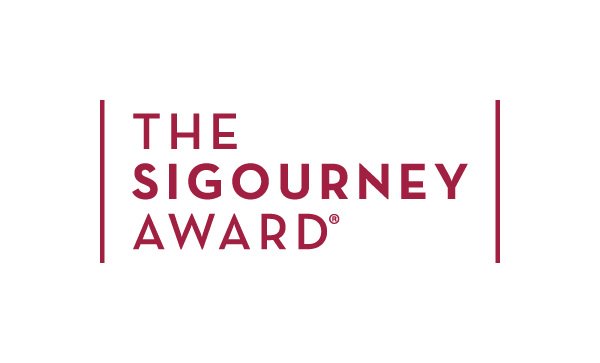Press Release for The Sigourney Award-2021
/The Sigourney Award-2021 Honors Three Recipients With Distinguished International Prize for Advancing Psychoanalytic Thought
Independent Panel of Judges Select Psychoanalytic Work With Impact From Argentina and the USA
Seattle, WA — Nov. 18, 2021 – The Sigourney Award annually rewards achievements that advance psychoanalytic thought and practice with international recognition and a substantial cash prize. This year, a panel of distinguished judges evaluated applications from five continents for The Sigourney Award-2021. The work recognized represents significant advancement of psychoanalytic thought. Today, William A. Myerson, Ph.D., MBA, and psychoanalyst co-trustee of The Sigourney Trust, announces three winners whose work merits the prestigious, independent award.
Mary Sigourney founded The Sigourney Trust in 1989 to recognize and promote exceptional work that employs psychoanalytic thought to better humankind.
“Selecting outstanding work that contributes to and strengthens the future of psychoanalytic thought while aiding humanity is the daunting responsibility of our esteemed, independent judging panel,” says Dr. Myerson. “The impact of this year’s award-winning work truly spans the globe, including treatment and education of people in China, Israel, New Zealand, Russia, South Africa, South America and beyond. We applaud the continuing expansion and application of psychoanalytic thinking around the world,” he adds.
The Sigourney Award-2021 Winning Work (Alpha order)
Erikson Institute for Education, Research, and Advocacy of the Austen Riggs Center
(MASSACHUSETTS, USA)
The nonprofit Erikson Institute demonstrates a significant commitment to, and investment in providing public and professional education about psychoanalysis as a clinical discipline and an applied theory for understanding human experience. The work contributes to interdisciplinary scholarship within psychoanalysis, between psychoanalysis and other related fields, and provides incubator support for projects in applied psychoanalysis that range from responding to local needs of schools, children, and families to understanding international conflicts. The Erikson Institute’s focus on youth, linking access to the arts with mental health, is a noteworthy innovation that expands psychoanalytic thinking beyond traditional clinical and academic boundaries, particularly within the context of limited arts education in schools and social isolation resulting from the pandemic. Through its Erikson Scholar program, interdisciplinary scholars have been invited to Riggs for three- to four-month research-based intellectual and clinical immersion residencies. Presenting its psychoanalytic identity in both clinical and public domains, the Erikson Institute has impacted new audiences through novel approaches. The Arts in Mind program and Creativity Seminars explore the connection between the arts and mental health, expanding reach beyond traditional clinical and academic boundaries. Research in psychoanalytic approaches to understanding suicide and personality, and advocacy for access to care with national impact are additional contributions.
Accepting the award on behalf of the Erikson Institute is Jane G. Tillman, PhD.
David Scharff, M.D., FABP and Jill Savege Scharff, M.D., FABP, MRC. Psych
(MARYLAND, USA)
The work of David Scharff, M.D., FABP and Jill Savege Scharff, M.D., FABP, MRC. Psych, Maryland-based partners, adapts psychoanalysis for those far from a psychoanalytic center and educating analysts to address remote treatment needs. Embracing teaching at the heart of their work, the Scharffs’ remote teaching and treatment work was accomplished in large part through the International Psychotherapy Institute (IPI) they co-founded, and as Supervising Analysts at the International Institute for Psychoanalytic Training (IIPT at IPI) and Teaching Analysts at the Washington Psychoanalytic Institute. The Scharffs developed an innovative, analytic training methodology and paved a non-traditional path to deliver analysis remotely. The new training methodology allowed the application of psychoanalytic approaches to family and couple psychoanalysis and psychotherapy, while their early adoption of technology expanded access to psychoanalytic psychotherapy in areas and countries previously beyond reach. Long before the pandemic forced psychoanalytic clinicians to endorse remote learning and service delivery, the Scharffs’ work employed videoconference technology in certificate programs that have reached psychoanalytically oriented trainees in the United States, China, Russia, and Latin America, with additional programming that enabled them to reach trainees and colleagues in such locations as Greece, Austria, South Africa, New Zealand, and Israel. Their books and articles have reached a worldwide audience through translations into eight languages, while their contribution to the dissemination of free e-books expanded access to psychoanalytic literature for readers in 200 countries and territories.
Dr. Jorge Claudio Ulnik
(BUENOS AIRES, ARGENTINA)
The innovative psychosomatic and psychodermatologic work developed by Dr. Jorge Ulnik exemplifies the important work being done on the mind-body relationship from a psychoanalytic perspective. Dr. Ulnik is a psychiatrist, psychoanalyst and Associate Professor of Pathophysiology and Psychosomatic Diseases and Adjunct Professor of Mental Health at the Buenos Aires University in Argentina. His work represents an innovation that continues the work of Freud ("the skin is the erogenous zone par excellence") and pioneers such as Enrique Pichón-Rivière, Max Schur, Didier Anzieu, Esther Bick, and others. At the psychosomatic dermatology center founded by Dr. Ulnik, dermatologists refer patients to psychoanalytic therapy, continuing and strengthening psychoanalytic perspectives into areas primarily thought of as medical. Dr. Ulnik's work has helped to revitalize psychosomatic research, theory, and practice in Latin America, Spain, and Russia. His work also reached Europe, North America, Australia, South Korea, and Israel, encouraging renewed interest in research, and promoting awareness of psychoanalysis’ importance in the treatment of somatic diseases. The work encouraged doctors and patients to work with psychoanalysts and advanced psychoanalytic understanding of emotional engagement expressed by the body and specially by the skin. Presentations of this work in many cities where psychoanalytic approaches are not integrated into medical practices have supported the importance of psychoanalysis in treating psychosomatic disorders, and trained doctors and general practitioners to understand the mind-body connection.
“The caliber of the 2021 applicants’ work and the expansive reach achieved through training, learning, and clinical application across the globe is inspiring. We look forward to continuing to expand public awareness of the benefits of psychoanalytic thinking and practice. We are excited by the new and innovative ways that psychoanalytic approaches are being used to benefit the human experience,” says Barbara Sherland, J.D., attorney co-trustee of The Sigourney Trust.

